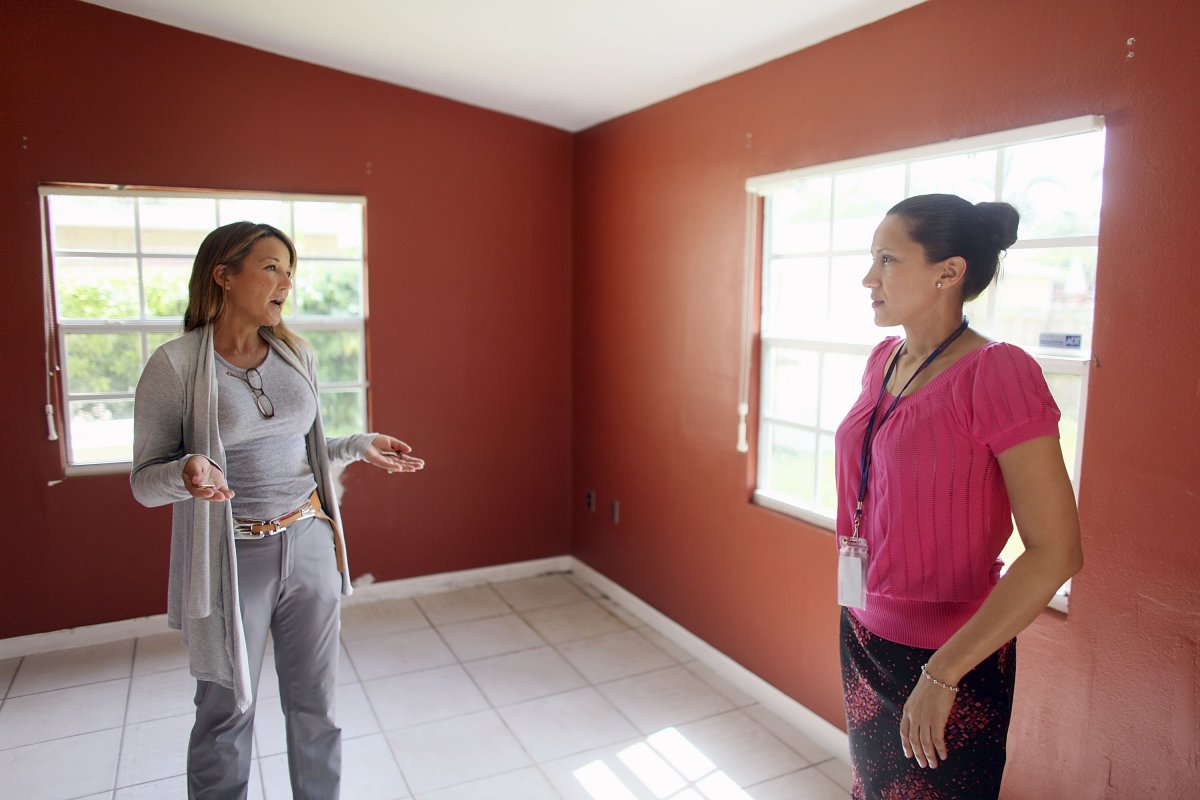The unexpectedly low mortgage rates of the pandemic era, a fleeting economic silver lining, are unlikely to make a comeback—and for good reason. Economists warn that such rock-bottom rates, while seemingly advantageous for homebuyers, could spell trouble for the broader United States economy.
Contrary to the popular appeal of lower mortgage rates, financial experts, including a former Federal Reserve economist, suggest that a return to the 2 percent to 3 percent rates might indicate severe economic distress. These rates, reflective of the pandemic's financial emergency measures, are an unfeasible expectation in a recovering economy, and serve as a potential harbinger of a major economic downturn.
During the height of the pandemic, mortgage rates plummeted, providing an unprecedented opportunity for homebuyers. The opportunity didn't arise from deliberate efforts by the U.S. government to encourage homeownership during the pandemic: Mortgage rates reached such unprecedented lows in response to the COVID-induced financial crisis, prompting the Fed to reduce its policy rates to nearly zero as a means of stimulating an economy grappling with recession.
To bring mortgage rates back to those levels, the U.S. economy would have to fall into a "severe recession," former Federal Reserve economist Claudia Sahm told Newsweek. Sahm is known for her work, including the Sahm Recession Indicator, which has a track record of accurately signaling recessions using the unemployment rate since 1970, with minimal false alarms.
According to Sahm, that recession "doesn't have to be as severe or as sudden as COVID, but, like the Great Recession [of 2008], the Fed cut rates to 0 fairly quickly and there was a financial crisis, but also the unemployment rate shot up to 10 percent." The economist said that when interest rates are low, "yes, that seems great, but when they're really low, that means that something bad has happened."
Sahm said that the U.S. isn't in a situation where the Fed needs to slash rates quickly. Instead, the Fed is on a sustainable path to bringing inflation down to its 2 percent target level, and even signaled to the potential of four rate cuts this year, which would inevitably bring mortgage rates down.
But How Much Will They Fall This Year?
While there is an understanding that mortgage rates reaching pandemic-era levels of 2 percent to 3 percent is "highly unlikely," there is consensus that rates are poised to decline. But just how much of a decline is up for debate, according to Sahm.
"Nothing is guaranteed, but most of my peers share this view: Interest rates are going down," she said. "We don't know exactly how much, we don't know when it will happen, but if you're in a place where the mortgage rates being high is really putting a pinch on what you can buy, well, if you wait, with a high likelihood, the interest rate is going to be less."
"I think there's a range of approximately 1 to 2 percentage points expected by the end of the year," Sahm continued. This would place the typical 30-year mortgage rate between 4.8 percent and 5.8 percent by the end of 2024.
Assuming a 20 percent down payment on a $425,000 home, a 5.8 percent mortgage rate would save a buyer $222 per month, while a 4.8 percent rate would result in savings of $433 per month compared to the current 6.8 percent rate.
However, the economist said that mortgage rates don't have to go down "one for one" with the Fed's policy rate, and there are a lot of other factors that go into mortgage rates that the Fed doesn't control. Still, she said that "we are in all likelihood going to see a notable, I mean 1 to 2 percentage points off mortgage rates."
While modest, that decline is already in motion, with the 30-year rate having dropped by roughly one-third of a percentage point since the Fed's mid-December announcement signaling an end to interest rate hikes and a potential move toward rate reductions in 2024. The early response in mortgage rates is a result of classic market anticipation, the economist said to Newsweek.
"The Fed hasn't cut their policy rate, but they've told us it's coming. Markets look ahead and they say, 'hey, this is what we think the Fed's going to do,' so they actually start declining. We've already seen mortgage rates responding to not just the view of what the Fed's going to do, but that the economy is going to be in a better place," Sahm said.

For potential homebuyers, that calls for a balanced approach. Despite the likelihood of declining rates, current economic context differs significantly from both the pre-pandemic and pandemic periods, Sahm said. The pre-pandemic era saw low rates, often around the 4 percent mark, but the current economic environment, marked by robust growth and a resilient labor market, points to a different reality, according to Sahm, which could mean that mortgage rates may not return to pre-pandemic levels.
The strengthened economy post-pandemic might withstand slightly higher mortgage rates than those preceding COVID-19, which puts a reality of mortgage rates settling around the 5 percent range in the conversation, she agreed.
"Interest rates could stay higher, but that is a reflection of like the economy's coming out, really still chugging along and in a better way than even before," Sahm said.
Uncommon Knowledge
Newsweek is committed to challenging conventional wisdom and finding connections in the search for common ground.
Newsweek is committed to challenging conventional wisdom and finding connections in the search for common ground.
About the writer
Aj Fabino is a Newsweek reporter based in Chicago. His focus is reporting on Economy & Finance. Aj joined Newsweek ... Read more
To read how Newsweek uses AI as a newsroom tool, Click here.








